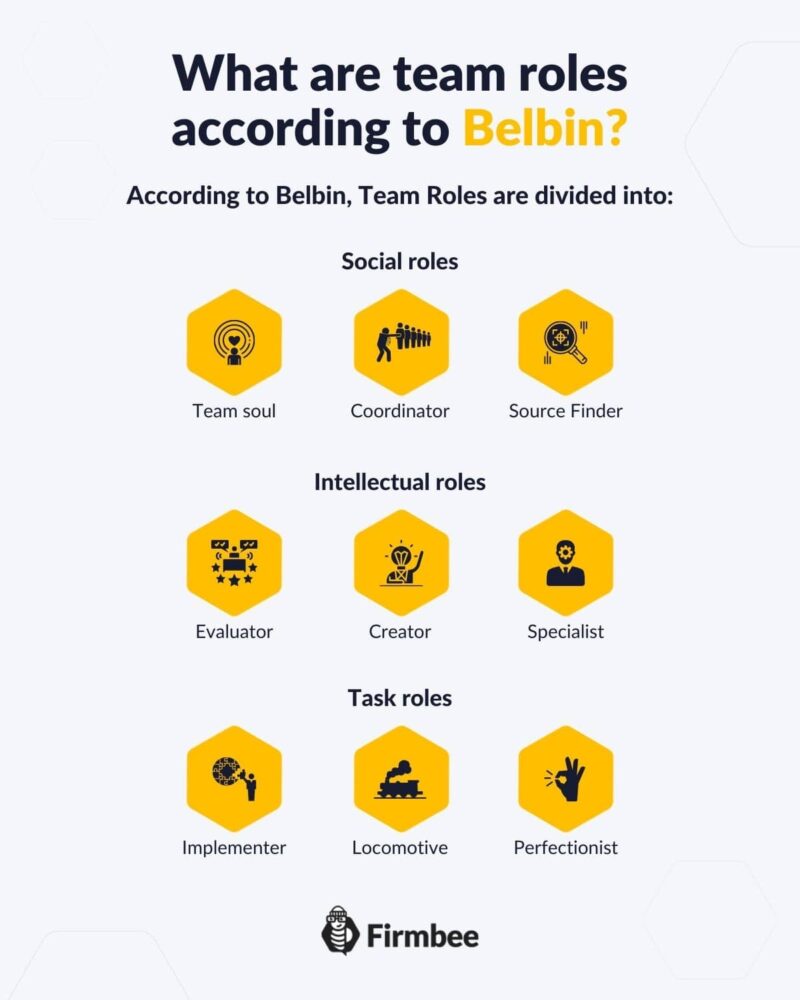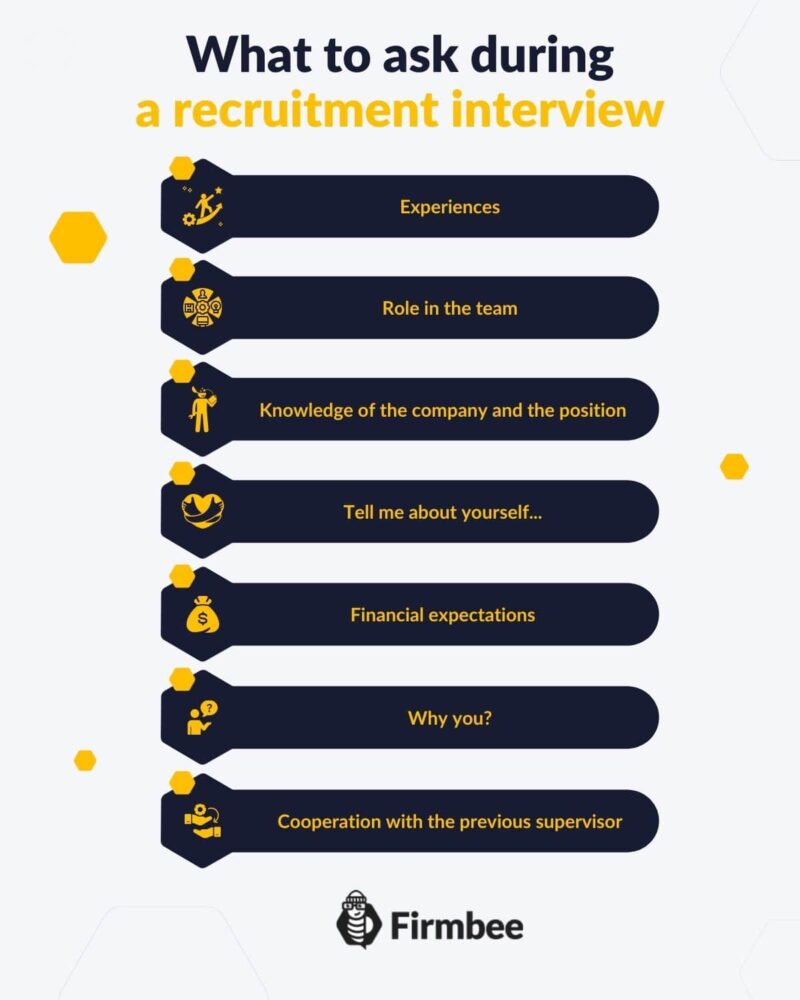The interview is the time to get to know the candidates – their work experience, completed schools and courses or declared skills are already known from the CV. So what questions to ask in an interview, and which questions to avoid? Read the article and find out how to prepare for the interview and conduct it professionally to make it smooth sailing for both parties.
Questions to Ask in an Interview – table of contents:
Questions to Ask in an Interview (and Questions To Avoid)
- Experiences
- Role in the team
- Knowledge of the company and the position
- Tell me about yourself…
- Financial expectations
- Why you?
- Cooperation with the previous supervisor
- No-go questions
From the CV, we already know where our candidates have worked, we have seen their responsibilities in the previous position and we can easily check what the company does and what its reputation is in the market. So there is no need to ask about previous jobs – after all, that’s all in the CV.
However, it is worth asking what the candidate has learned from previous positions, what crises they faced and how they solved problems that arose.
You can also ask about their role in the team, e.g. whether they would like to take the position of a leader or rather a subordinate, how they solve disputes in the team, what functions they would like to handle. To check this, you can also conduct a Belbin Test to determine the role of an individual in the team.
How can this knowledge be useful? When recruiting for a specific team, it is worth talking to the team leader beforehand to determine what he or she needs – perhaps the team lacks someone who will motivate the rest of the group or someone disciplined who will keep track of the schedule and work plan. Or maybe the team requires someone creative? It is good to determine this well in advance so that you simply know who to look for.
Knowing the needs of the manager for whom we are hiring and the candidates’ experience, character and role in the team will make it easier for us to match them to the position – perhaps they will also learn something about themselves in the process.

It is already a standard procedure to check the candidates’ knowledge about the industry, company and the position they are applying for. It is good to ask what they know about the company and how they envision the responsibilities involved with the selected position. This will enable them to check the level of their engagement and actual interest in the offer.
If candidates spent even a moment on research and preparation for the interview should indicate that they care about the job. It is also a kind of test – how the candidate will apply to daily duties at work after employment.
“Say something about yourself” is probably the most prominent interview cliché. Many people think recruiters ask it when they don’t know what to say. However, this is not true – this practice lets you test the candidate’s self-presentation skills and self-awareness. A good candidate should get the recruiter interested in their person.
The question that should appear at the initial stage of recruitment concerns the financial expectations of the candidate. By knowing them, you will check how they value their work and whether they fit into the spreads offered by the employer.
The question can come in different forms: what sets you apart from the candidates? What will you bring to our company? Why should we hire you?
It also enables the recruiter to see if the candidates know their value and are aware of their skills and experience. The recruiter will find out what assets the company may gain by employing the candidate – perhaps they could streamline a process, increase sales profits or improve communication among employees.
Let the candidates speak freely about their accomplishments and knowledge attained during the previous positions and how that could translate that to the company where they will be hired.

Between a supervisor and an employee, as we know, things can be different. However, answering the question about experience and cooperation with previous supervisors can tell you a lot about the candidate.
It is not for complaining about the previous workplace and denigrating the former boss in the eyes of the recruiter. The candidate should focus on conflict resolution, tell how their cooperation looked despite everyday difficulties, problems or misunderstandings.
You can also ask what qualities the candidates expect from the potential employer and what behaviors they find unacceptable . This will allow you to check the compatibility between the candidate and the future supervisor.
In addition to preparing for the interview by writing down the questions that should appear, remember to have a list of no-go questions. These relate to marital status, health, private life (unless you ask about hobbies written in the CV), sexual orientation, political or religious views. These issues may make the candidate feel judged or discriminated against. One of the still frequently asked “no-go questions” is asking young women if they are planning a pregnancy. This is a very personal matter, which should not influence the recruiter’s decision on hiring.
Summary
Before the interview, the recruiter should create a list of questions for the candidate and remind themselves which topics to avoid. A professional approach to the matter will result not only in finding the best-fit candidate, but also will make them feel at ease during the interview, which will affect the overall Candidate Experience. This issue we covered in a separate article: How to provide the best candidate experience in recruitment.
Questions to Ask in an Interview – Key Questions
- What is the Belbin Test?
- What are team roles according to Belbin?
- What questions should a recruiter not ask in a job interview?
This is a test consisting of several closed questions, which determines the role of an individual in a team. It allows building a well-coordinated team, based on the skills and predispositions of its members.
According to Belbin, Team Roles are divided into social roles (Team Soul, Coordinator, Source Finder), intellectual roles (Evaluator, Creator, Specialist), and task roles (Implementer, Locomotive, Perfectionist).
Discriminatory questions – concerning religion, political views, health or private life (marital status, family planning).
If you like our content, join our busy bees community on Facebook and Twitter.
Author: Nicole Mankin
HR manager with an excellent ability to build a positive atmosphere and create a valuable environment for employees. She loves to see the potential of talented people and mobilize them to develop.


















